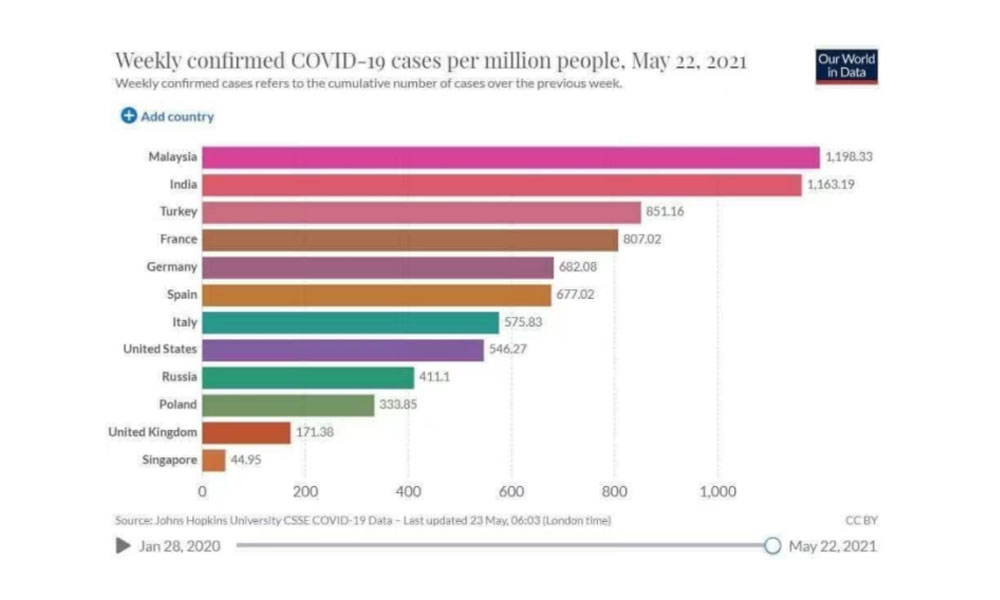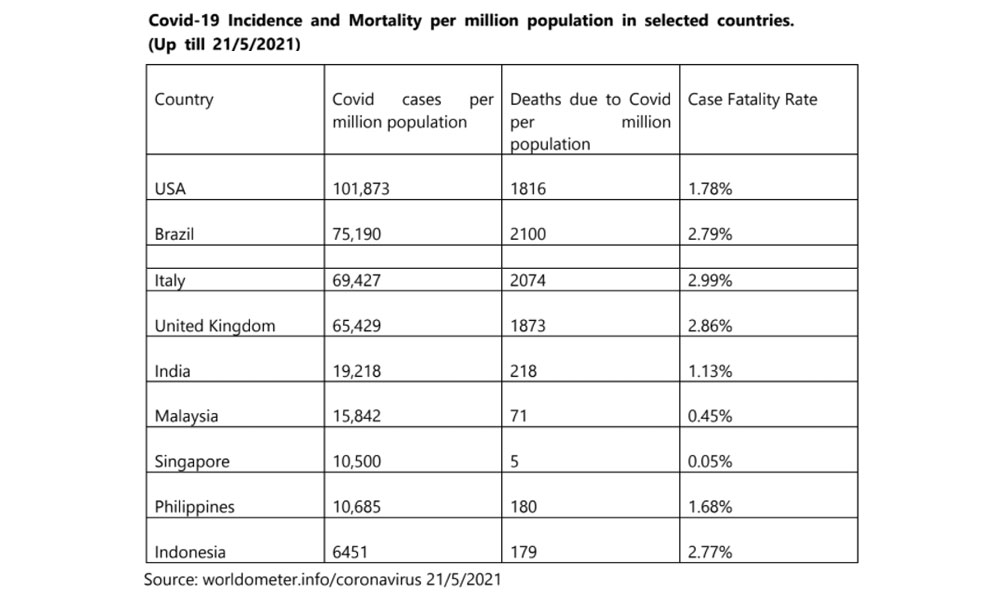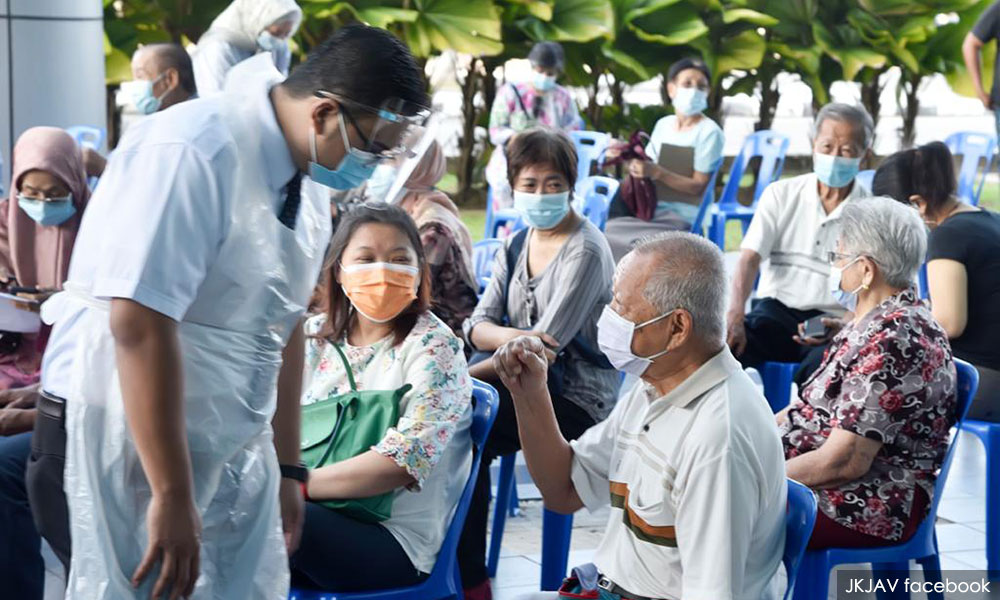COMMENT | Frankly, I am getting a little tired of the lack of objectivity in the discussions of the Covid-19 pandemic in Malaysia. For those who persist in calling the Perikatan Nasional government a “backdoor government”, every single bit of information is presented in a manner to support the notion that the PN is totally incompetent.
For example, there was a chart circulating on social media a few days ago showing that Malaysia’s daily rate of new cases per million population was the highest in the world, with an accompanying comment about the ineptness of the PN administration.

The pandemic is following a waxing and waning pattern across the world. There are waves of infections occurring on and off in various countries. While the statistics shown in the chart above are correct as far as Malaysia’s case incidence is concerned, it is not sufficient basis to give a balanced evaluation of the government’s handling of the pandemic up till now.
Let me share with you some figures that give a far better basis to evaluate Malaysia’s performance.

Statistics need to be interpreted cautiously. I would argue that the incidence of Covid-19 cases per million population gives the best single measure of a country’s competence in handling the pandemic. Early case detection, proper contact screening, testing, and isolation of positive cases are what will keep the incidence levels down. These interventions require a high level of political commitment and coordination which clearly was lacking in some of the richest countries in the world.
Of course, the caveat would be that the percentage of asymptomatic or mildly symptomatic cases recognised as Covid-19 positive would vary depending on how wide the screening net is cast for each positive case, and the lower incidence rates in some developing countries could be due to under-diagnosis.
The case fatality rate (CFR) is more difficult to fathom as mortality depends on several different factors. It is probable that the higher case fatality rate in Indonesia as compared to Malaysia is due to them not diagnosing as many of the asymptomatic cases as we are doing in Malaysia – that is, our CFR is lower partly because our denominator for this index is larger. Another possibility is that in Indonesia, adequate medical care was not available for some of the 15 percent of cases that required oxygen support.
The much higher CFR for Italy and the UK is because the population of these countries has a greater propensity to over-reaction of the immune system to Covid-19 infection. This over-reaction precipitates “cytokine storms” and derangement of the clotting mechanism in the body.
This sets in during the second week of clinical illness, and the damage done then is no longer due to the Covid-19 virus but to “collateral damage” caused by an over-excited immune system. (This is why the mainstay of treatment for these patients are steroids to calm down the immune system and anticoagulants to prevent abnormal clotting.)
Based on the table above, I would say that our government hasn’t done too badly in handling the pandemic, though obviously, mistakes have occurred – the Sabah elections, the failure to win the trust and cooperation of the migrant worker population, and the failure to guard against overcrowding in our bazaars and markets.
We citizens have a right, even a duty, to criticise and offer ideas on how to improve the handling of Covid-19. But our criticism must be dispassionate and based on objective reasoning, and not comprise of “cheap shots” to score partisan political points.

We (in Malaysia and in the world) are now facing the biggest crisis faced by humankind since the Second World War. We need our government to do the right thing to steer us out of this combined health and economic crisis. The government has to:
- implement movement restrictions as and when required to keep the incidence of new cases from overwhelming the capacity of our hospitals;
- ensure that the vaccination programme reaches 80 percent of our population (26 million) as soon as possible. As of date, only 11 million Malaysians have signed up. The rest remain unconvinced, and the anti-vaxxers are not helping the situation;
- ensure that those whose incomes have collapsed because of the MCOs are identified and supported; and
- raise the funds necessary to do all of the above without compromising Malaysia’s credit ratings in the financial markets.
The government needs the support and trust of the people in order to carry out the above measures. I would submit that unfairly running the government down and undermining its credibility does not help in handling the Covid-19 nightmare.
Do criticise if there are shortcomings and if possible, suggest pragmatic steps that can be taken to overcome these.
But disparaging everything the government is doing on the basis they are an “illegitimate backdoor government” and therefore everything they do must be faulty, is not helping the situation.
Let’s leave partisan politicking aside for now and focus on navigating safely through the Covid-19-induced health/economic storm.
DR JEYAKUMAR DEVARAJ is PSM national chairperson.
The views expressed here are those of the author/contributor and do not necessarily represent the views of Malaysiakini.

